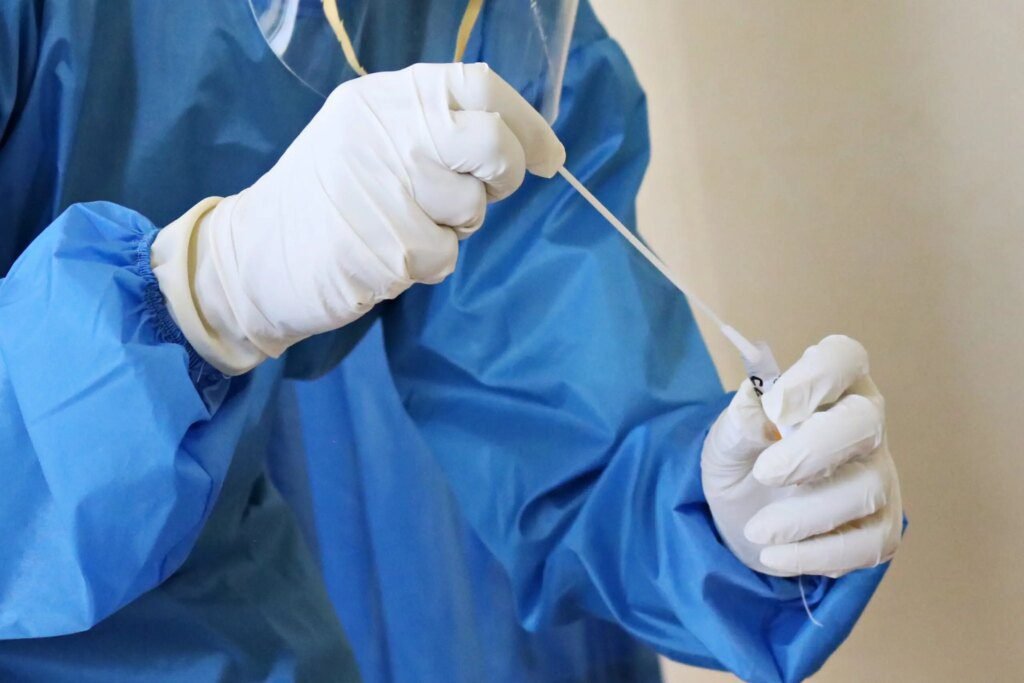Researchers at the University of Alberta have discovered several biomarkers that may help predict adverse clinical outcomes associated with long-term COVID-19 infection. Similarly, they discovered that certain amino acids may be a potential treatment for individuals with this condition.
long new coronavirus infection Persistence of symptoms after initial coronavirus infection (COVID-19). Symptoms associated with long-term COVID-19 infection can last for weeks, months, or years. These symptoms lead to a decrease in overall quality of life.
biomarker, detected in biological samples, indicates changes occurring in the body and helps detect the onset of disease. The research team is led by Dr. Gavin AuditA professor in the School of Medicine and Dentistry, he has devised a tool to identify several biomarkers. Dr. Audit said the team was able to identify a number of biomarkers that were altered in patients with COVID-19.
Taurine may be a signature biomarker of long-term COVID-19 infection, says Dr. Audit
of study The study enrolled 117 COVID-19 patients and 28 healthy patients from hospital wards and intensive care units in Alberta. They collected blood samples at the start of the study and again six months later. Dr. Audit explained that from these blood samples, the team looked at current biomarkers that changed in patients with acute COVID-19 infection.
“By using machine learning, [we were] We were able to decipher 20 molecules that were highly predictive of long-term COVID-19 infections. ”
The model was able to predict adverse clinical outcomes in acute COVID-19 patients after hospital discharge with 83% accuracy.
Taurinea type of amino acid had a special ability to predict the onset of long-term coronavirus infections.
“We were able to obtain a panel of molecules. [taurine] It could be used as a biomarker signature for long-term coronavirus disease (COVID-19). “It gives us a lot of insight into potential treatments for this disease,” said Dr. Audit.
“People with lower taurine levels had more severe symptoms. [associated with] Long COVID-19 infection. ”
Taurine is a semi-essential amino acid produced in the liver. It is also found in foods high in protein such as meat and fish.
“Taurine has all kinds of protective effects on the gut, cardiovascular system, and central nervous system,” Dr. Audit said. “Taurine has anti-inflammatory properties and has a lot of membrane-stabilizing properties.”
“In this study, we found that patients [who] People who maintained high taurine levels had minimal symptoms of long-term COVID-19 infection.People with lower taurine levels had more symptoms [associated with] Long COVID-19 infection. ”
Dr. Audit emphasized the need for further research into the effects of taurine on human health. Researchers found that high taurine is associated with minimal long-term COVID-19 symptoms, but taurine alone causes these minimal symptoms. I couldn’t prove that. To do this, researchers must conduct a phase 3 clinical trial.
“We want to test this in both pediatric and adult patients with COVID-19 and in patients without COVID-19,” Dr. Audit said. “We think [taurine] will have many beneficial effects [such as] Anti-inflammatory effect. It may protect the brain and may also be good for the cardiovascular system. ”
The discovery was unexpected, Dr. Audit said. By conducting phase 3 clinical trials, the team plans to “take a biomarker-driven approach.” They predict that “patients with low taurine may respond better to taurine supplementation.”
For Dr. Audit and his team, this discovery is an exciting prospect that warrants further exploration.
“We are excited about the biological effects [of taurine] and its association with lingering COVID-19 infections,” Dr. Audit said. “I think it’s very exciting to be able to do this research here at the University of America and to have students participate in this research.”

